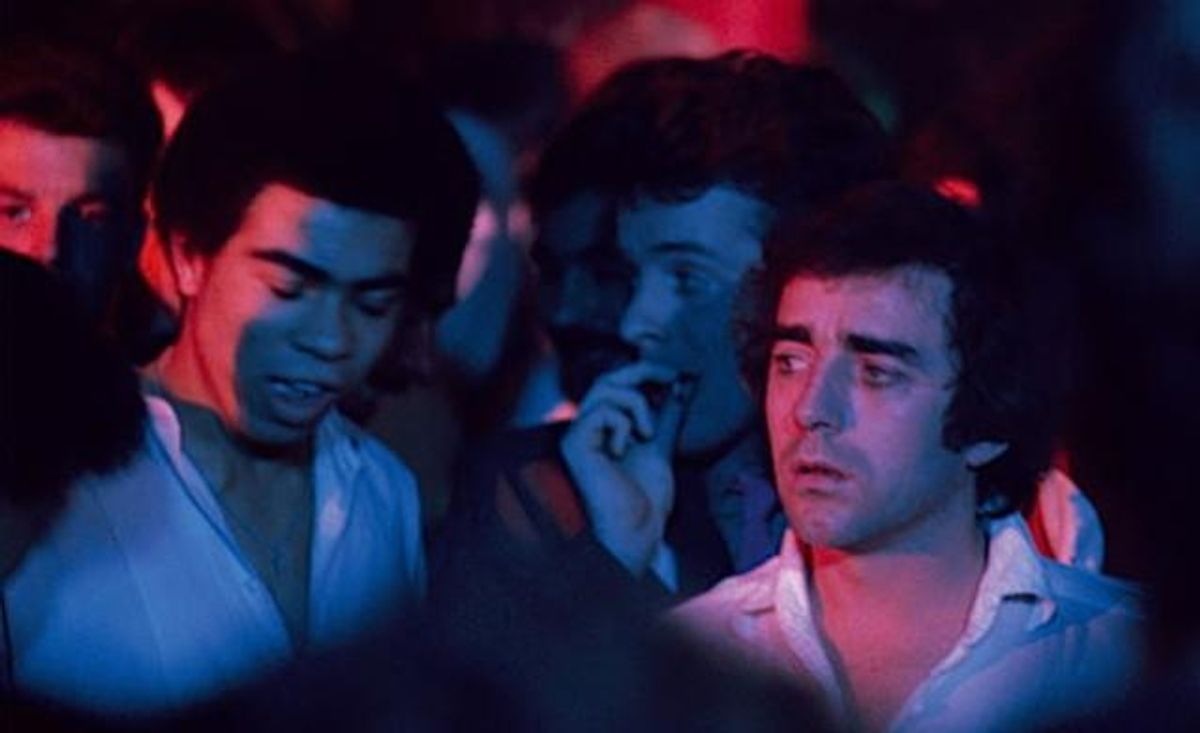
Director Ron Peck's Nighthawks opens a time capsule of the gay '70s
April 21 2015 2:44 PM EST
May 01 2018 11:57 PM EST
By continuing to use our site, you agree to our Private Policy and Terms of Use.

Director Ron Peck's Nighthawks opens a time capsule of the gay '70s
An unforgettable scene in the 1978 film Nighthawks stares at a schoolroom full of teenagers as they impudently interrogate their gay male teacher: "Is it true you're bent?" "Are you queer?" Director Ron Peck subverts the male gaze from pleasure to alarming human revelation.
Holding on the classroom panorama, Peck creates a mirror-image of society. Not mere bullying, this inquisition by school kids reveals what recent bullying documentaries don't: that the students have ingested rumor, meanness and prejudice while also exhibiting basic curiosity. Flashes of their own insecurity and empathy lift the scene to real art.
A 2015 filmmaker would likely use this "teachable moment" for politically correct judgment but because Nighthawks simply gazes at students in the painful process of exploring hegemony and ideology, it is all the more powerful.
Nighthawks, a conceptualized art project from the 1970s combining fiction with documentary, is also a living record of the era immediately after Stonewall -- when the Pride parade was called the Liberation parade; the era that writer Brad Gooch called "The Golden Age of Promiscuity." British director Peck looked at those experiences with amazing honesty by following the nightlife of an out-gay school teacher Jim (Ken Robertson), who looks like actor Dudley Moore (whose alcoholic portrayal in Arthur always seemed a cover for latent homosexuality). Jim has the common urge for sex and connection. Is he predatory, compulsive or just a gay man managing?
The title Nighthawks hints at desperation, an inevitable aspect of both loneliness and desire in transient relationships. Peck holds up a mirror. "This is gay life!" he instructs -- as candidly as one trick said to another in the perspicacious '80s Al Parker porn film Inches -- but because Peck's observation is also sociologically and emotionally perceptive this film is not pornographic. Call it existential; more Robert Bressonian than Dionysian, and there's been nothing like it since.
The long, steady close-up of Jim's face (sweat, then his eyes) as he stands in a bar looking looking looking, sets up Peck's scrutiny of cruising: the male gaze. A disco score overlays the bar scenes. Frantic dance beats distance the spectacle of gay males pursuing pleasure -- it looks like work (one dancer in a blue sleeveless t-shirt makes washboard-scrubbing gestures) -- unlike the sinuous cruising scenes in Julian Hernandez movies.
Peck advances the English documentary tradition of Humphrey Jennings -- reporting, vision and sensitivity. Jim's sex life includes casual dating; polite morning-after car rides instead of walks of shame; all integrated with his working life as a schoolteacher.
Jim's profession no doubt influenced Frank Ripploh's 1981 gay breakthrough film Taxi Zum Klo (about a school teacher on the flesh rampage). This emphasis on working-class life is vastly different from contemporary gay films which imply that middle class gays automatically possess social freedom that is ideal or at least trouble-free.
Much of today's gay media feature self-flattery not self-examination. Progressing from liberation struggle to pride may justify this convention but the honesty of Nighthawks goes deeper. Peck's gaze at gay life is fearless, heroic. As with the students in that classroom scene, you can't judge Jim's desperation without also judging yourself.
Nighthawks screens April 25 in "The Art of The Real" series at the Film Society of Lincoln Center, with Derek Jarman's "Will You Dance With Me?" screening prior. Watch a 2009 interview with the director below:
Sexy MAGA: Viral post saying Republicans 'have two daddies now' gets a rise from the right